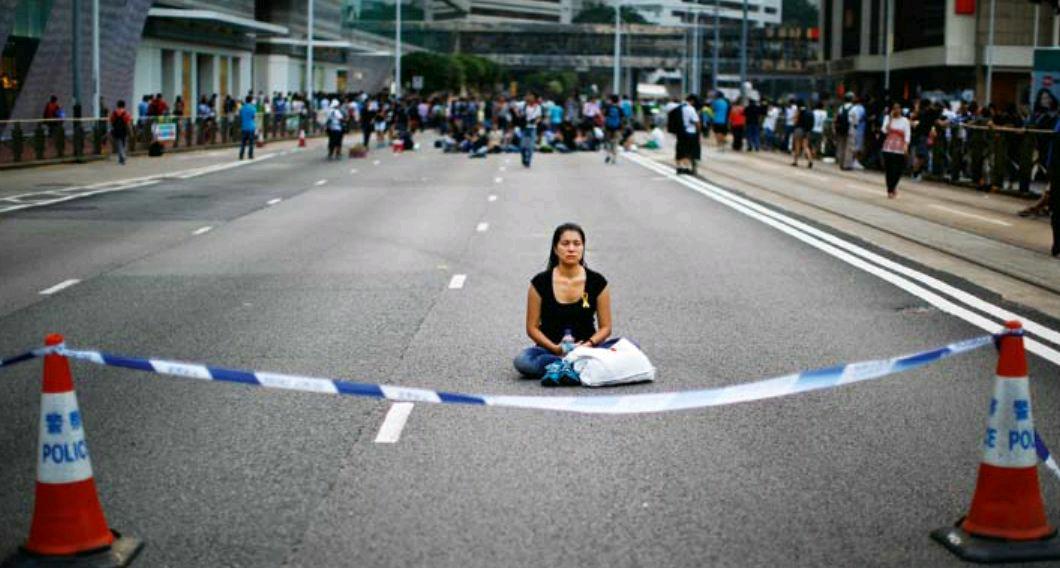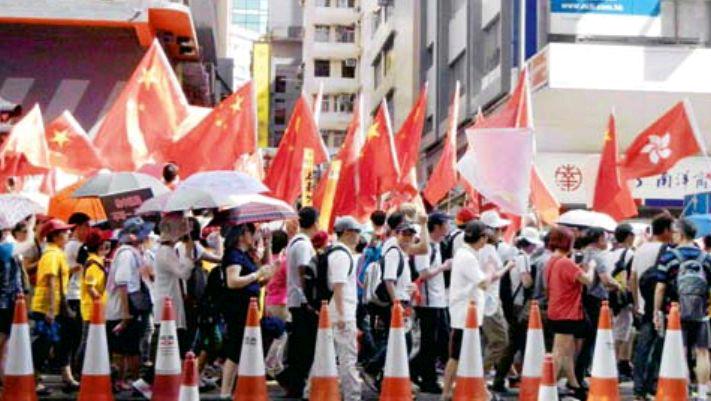“Occupy Central”Destroys Hong Kong’s Core Values
The economic prosperity of Hong Kong has been attributed to its political stability over the past half a century. However, the situation has been challenged recently.
Since 2013, as concern and discussion of the election of the Hong Kong Special Administration Regions next
chief executive by universal suffrage in 2017 continues rising in local society, an irrational force that counters the mainstream voice has begun disturbing Hong Kong citizens efforts to seek consensus on election methods by calling for the so-called “Occupy Central” movement. The movement, which breaks the “One Country” principle and the Basic Law of Hong Kong, broke out on September 28, 2014. It has generated a considerable negative
impact on the local economy and Hong Kong citizens lives. Conservative estimates of losses caused by “Occupy Central” tally about HK$ 350 billion. More importantly, the movement severely hurt many peoples confidence in Hong Kongs future and the “rule by law” spirit in which Hong Kong citizens used to take pride.
Hong Kong society has changed dramatically since the breakout of the “Occupy Central” movement. One night, as I took a subway through Mong Kok, an area heavily affected by the movement, tension was obviously thick in the air. Occasionally, sounds of quarrels reminded me that supporters and opponents of “Occupy Central” were wrangling with each other. Even in areas far from the reach of the movement, hostility and confrontation began to surge, with quarrels becoming more and more frequent. Usually, reasons for quarrels are indirect consequences of the “Occupy Central” movement. People are already sick of it: Due to the blockage of roads, parents are taking time off work to care for children who cannot get to kindergartens, shopkeepers are seeing their sales drop, and commuters are spending more time on the trip to work. Due to all this increased stress, widespread quarreling over trifles is understandable.
Individualists value individual will above anything else. The rampancy of individualism causes us to neglect the impact of group pressure and social environment on individuals. It was reported that a Hong Kong psychiatrist recently received more than 10 patients suffering from mental problems arising from recent social and political situations. Police officers, irritable people and those with mental disorders are three of the most vulnerable groups. He predicted that the number of psychiatric cases would rise in next two months. “Occupy Central” supporters argue that such news is exaggerated to discredit the movement.
On the internet, great numbers of people judge things on personal taste rather than right and wrong. Ads of a fast-food giant say, “Im lovinit” – even though its junk food. So what? Many forget that what they like may be wrong, while something right may not be likeable. Many lose the ability to distinguish right from wrong in order to win support on social media. At the movements heart, “Occupy Central”wants individualism over anything else. In their eyes, history was just pre-modernity waiting for the arrival of democracy and laws are just “tricks to cheat students and citizens” (as The Hong Kong Federation of Students said).
Perhaps some underestimated the persistence of “Occupy Central” participants. But it would be a big mistake to consider the movement a victory considering the publics anti-Occupy Central voice. “Occupy Central” supporters do not know where the movement will go next. Despite the fact that many Hong Kong citizens object to the movement that is causing severe social problems, participants choose to stubbornly and arbitrarily cling to their own course and attack those who disagree with them.
The failure of the “Occupy Central”movement lies in its complete exposure of the terrible side of “democracy.” From online videos and information about the movement, we do not see the “peace and rationality” as described by some Western media, but the most despicable and ugliest side of human nature. Previously, the pro-establishment camp in the Legislative Council claimed that blind democracy may cause various problems, and many Hong Kong citizens didnt buy it. But now, they really feel the “price” of blind democracy.
Initially, “Occupy Central” leader Benny Tai Yiu-ting planned to occupy the Central area, but the movement soon turned into a riot that swept across the Hong Kong harbor. Small businesses in Mong Kok and Causeway Bay werent informed in advance and couldnt offer telecommuting like investment banks, and thus suffered substantial losses during the movement. It can be foreseen that after the movement, Hong Kong citizens will turn pale at the mention of any protest campaigns.
Hong Kong has failed. The demolishers of its core values are those who claimed to protect Hong Kong.

